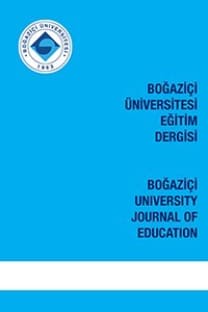Family Background, Parental Expectations, School Choice and Student Performance
The aim of the study is to assess the effects of child-centered life orientation on children’s achievement levels, self-esteem, and parents’ school choice. The second question is related to the effects of the educational level of the mother and the economic status of the family on different child-related outcomes. The study points to the critical and positive influence of child-centered life orientation on higher achievement levels and self-esteem as well as being able to enter public and private selective schools, which admit students through national examinations. Furthermore, the educational level of the mother and the economic status of the home lead to non-overlapping outcomes, the educational level of the mother being related to more child-centered orientations, higher educational expectations for the child, and selective schools; while economic status being related to economic expectations and private non-selective schools.
Anahtar Kelimeler:
Child-centered life, family background, educational expectations, economic expectations, selective versus non-selective schools
Family Background, Parental Expectations, School Choice and Student Performance
The aim of the study is to assess the effects of child-centered life orientation on children’s achievement levels,
self-esteem, and parents’ school choice. The second question is related to the effects of the educational level
of the mother and the economic status of the family on different child-related outcomes. The study points to
the critical and positive influence of child-centered life orientation on higher achievement levels and selfesteem as well as being able to enter public and private selective schools, which admit students through
national examinations. Furthermore, the educational level of the mother and the economic status of the home
lead to non-overlapping outcomes, the educational level of the mother being related to more child-centered
orientations, higher educational expectations for the child, and selective schools; while economic status being
related to economic expectations and private non-selective schools.
Keywords:
Child-centered life, family background, educational expectations, economic expectations, selective versus non-selective schools,
___
Alderman, K. M. (1999). Motivation for achievement. NJ: Lawrance Erlbaum Associates.Anjel, M. (1993). The transliteral equivalence, reliability and validity studies of the parental acceptance-rejection questionnaire (PARQ) mother-form: A tool for assessing child abuse. Unpublished master’s thesis, Boğaziçi University, Istanbul, Turkey.
Bee, H. (1981). The developing child. NY: Harper & Row Publishers.
Bekman, S. (1998). A fair chance. İstanbul: Mother Child Education Foundation Publication-13.
Bloom, B. S. (1964). Stability and change in human characteristics. NY: JohnWiley and Sons Inc.
Bloom, B. S. (1976). Human characteristics and school learning. NY: McGraw-Hill Book Company.
Bloom, B. S., Sosniak, L.A., Sloane, K.D., Kalinowski, A.G., Monsaas, J.A., &Gustin, W.C. (1985). Developing talent in young people. NY: Ballentine Books.
Branson, B, M. (2000). Self-regulation in early nature and nurture. NY: Guilford Press.
Coleman, P. (1998). Parent, student and teacher colloboration: The power of three. London: Paul Chapman Publishing.
Covington, V.M. (2000). Goal theory, motivation, and school achievement: An integrate review. Annual Review of Psychology, 51, 1, 171-200.
Çataklı, M. (1985). Transliteral equivalence and reliability of the Turkish version of the Piers-Harris children's self-concept scale. Unpublished master’s thesis, Boğaziçi University, Istanbul, Turkey.
De Haan, G. L. (1998). The relationship of individual and family factors to the psychological well-being of junior high school students living in urban poverty. Adolescence, 33, 129, 73-90.
Dowling, M. (2000). Young children’s personal, social and emotional development. London: Sage Publications Inc.
Hendee, W.R. (1991). The health of adolescents. San Francisco: Jossey-Bass.
Hill, E. N. (2001). Parenting and academic socialization as they relate to school readiness: The roles of ethnicity and family income. Journal of Educational Psychology, 93, 4, 686-697.
Kağıtçıbaşı, Ç. (1996). Family and human development across cultures: A view from the other side. NJ: Lawrance Erlbaum Associates.
Kifer, E. (1973). The effects of school achievement on the affective triats of the learner. Unpublished doctoral dissertation, University of Chicago.
McLoyd, V. C. (1990). The impact of economic hardship on Black families and children: Psychological distress, parenting, and socioemotional development. Child Development, 61, 311-346.
Merkezi Sistem Sınavları İstatistik Bilgileri, 1995. (1995). Ankara: Milli Eğitim Bakanlığı, Bilgisayar Eğitimi ve Hizmetleri Genel Müdürlüğü Sınavlar Daire Başkanlığı Yayınları.
Merkezi Sistem Sınavları Sayısal Veriler, 2000. (2000). Ankara: Milli Eğitim Bakanlığı, Eğitim Teknolojileri Genel Müdürlüğü Yayınları.
Newman, M.B. (2000). The transition to high school for academically promising, urban, low-income Arfican American youth. Adolescence, 35, 137, 45-66.
Okullar Rehberi-1995-1996. (1996). İstanbul: İstanbul Valiliği İl Milli Eğitim Müdürlüğü Yayınları.
Öner, N. (1997). Türkiye’de kullanılan psikolojik testler. İstanbul: Boğaziçi Üniversitesi Yayınları.
Özel Okullar Sınav Kılavuzu 1995. (1995). İstanbul: Özel Okullar Derneği Yayınları.
Özel Okullar Sınav Kılavuzu 1994. (1994). İstanbul: Özel Okullar Derneği Yayınları.
Özel Okullar Sınav Kılavuzu 1993. (1993). İstanbul: Özel Okullar Derneği Yayınları.
Polat, A.S. (1988). Parental acceptance rejection. Unpublished master’s thesis, Boğaziçi University, İstanbul.
Rohner, R. P., Saavedra, J. M., & Granum, E. O. (1978). Development and validation of the personality assessment questionnaire: Test manual. University of Connecticut, Center for the Study of Parental Acceptance and Rejection. Retrieved July 8, 2001, from http:// www.cspar.uconn.edu.
- ISSN: 1300-9567
- Yayın Aralığı: Yılda 2 Sayı
- Başlangıç: 1976
- Yayıncı: Boğaziçi Üniversitesi
Sayıdaki Diğer Makaleler
Family Background, Parental Expectations, School Choice and Student Performance
Güzver YILDIRAN, Şükran İLİMSEVER BAŞARIR
Exploring the Relationship between Annotation Use of EFL Learners and Their Learning Styles
Aile Altyapısı, Ebeveyn Beklentileri, Okul Seçimi ve Öğrenci Performansı
